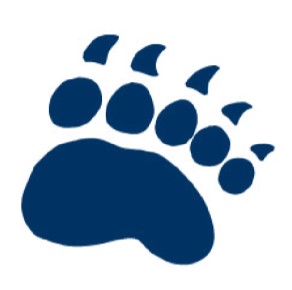
Technical Supports
- What do I need for computer or internet access?
- Where do I log in to see my classes?
- Is my ExplorEC portal the same as my UMaine Portal?
- How do I activate my account?
- How do I update my ExplorEC portal?
- Who can help me if I am having technical issues?
1. The computer must have speakers and microphone capabilities for Zoom video conferencing. Minimum OS: Mac OS, Windows OS or Chrome OS computer with 2.5 GHz or higher desktop CPU with a minimum internet speed of 2.0 Mbps
2. Your UMaine portal, found at mycampus.maine.edu, provides easy access to MaineStreet, Brightspace, Zoom, and more. Bookmark this one link to access everything you need. You can watch this video to explain the process.
3. Your ExplorEC portal is only for application processing. You can view courses, apply, and check the status of your application. It does not give you access to anything else. You need to sign into your UMaine portal to find your course information. (see question #2)
4. To activate your account, change or recover a password, or perform other account management you need to navigate to http://accounts.maine.edu/
When activating your account you will need your student ID and activation code.
To have an activation code generated for you please navigate here, and your activation code will be emailed to you shortly.
5. You are able to update all your personal information in your application portal at any time. Please make sure that you are using your own private email and cell phone number. You can reset your password from the login screen but if you are having trouble accessing the ExplorEC portal, please email us directly at um.earlycollege@maine.edu
6. Call 207.581.2506 or email help@maine.edu for student online course technical support.
Academic Supports
- How do I brush up on math so that I’m ready for a university-level math course?
- Who can help me if I need some help with a paper or assignment?
- Is there a live tutor that can meet with me?
- Everyone knows that cheating is wrong, so why does everyone keep talking about academic integrity?
- My professor wants me to use academic journals for my paper. How do I find those?
- I have an IEP or 504 plan at my high school. How does that apply to the university and can I get help?
1. In order to help you make sure that you are adequately prepared for your math class, we have compiled some practice problems, along with resources to help you fill in any gaps in your background. Math Prep will prepare you for your upcoming math class.
2. NetTutor is an exciting online tutoring service to assist you with any and all issues you may have with your coursework. As with your library access, you can use this tool to get assistance with your college and high school courses. This video shares the basics.
- Tutors are friendly and patient.
- 24×7 live Math and Writing support
- Convenient online, anytime use
- Timely drop-off response
- Improves your success
3. The Tutor Program, one unit of the University of Maine’s College Success Programs, provides tutoring for UMaine students who need academic assistance in 100 and 200 level, non-web based courses. Tutoring is available at no additional cost to students. Students may utilize zoom tutoring for up to 50 min per course per week.
Students may also schedule remote appointments with the UMaine Writing Center for help with papers, essays and more.
4. You may already know that it is dishonest to cheat on exams, copy papers, or submit papers written by another person. But it is also considered cheating to copy or reword parts of books or articles into your own writing without PROPERLY citing the source. (This applies to posts and discussion boards, too). The library and NetTutor can help you with instructions on how to do this correctly. University Policy on Academic Integrity
5. You may be familiar with google scholar, but you have access to all sorts of articles through your UMaine account by clicking on Fogler Library. Here’s a video that describes how to use this feature.
6. Students who have 504 plans or IEPs in their high schools often feel that they wish to attempt college-level courses without these plans in place. There is a better way to approach this topic. Because the rigor of a college-level course is higher than that of a high school course, students are encouraged to reach out to Student Accessibility Services. Some of the services provided or coordinated for students with disabilities include testing accommodations, note-takers, ordering alternate format texts, classroom relocation, and advisement on disability issues.


